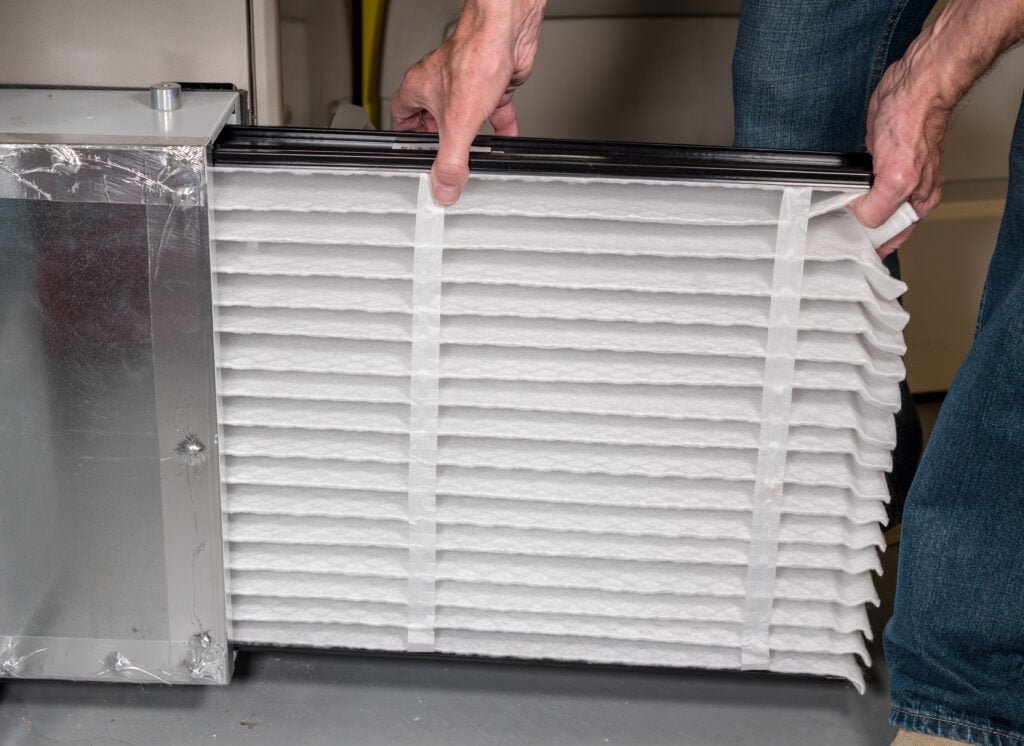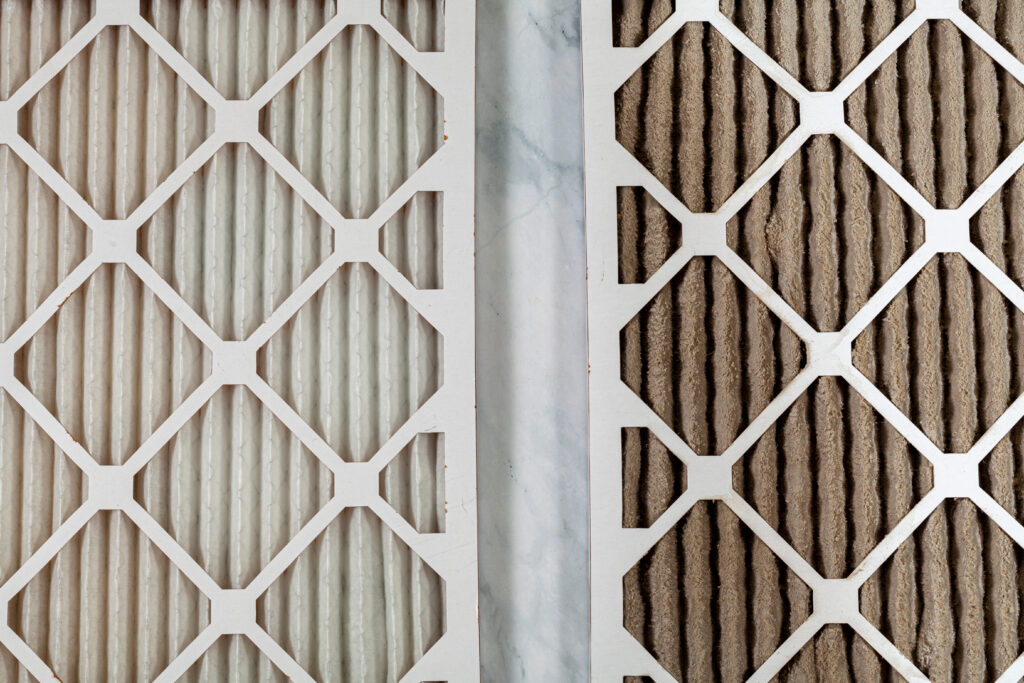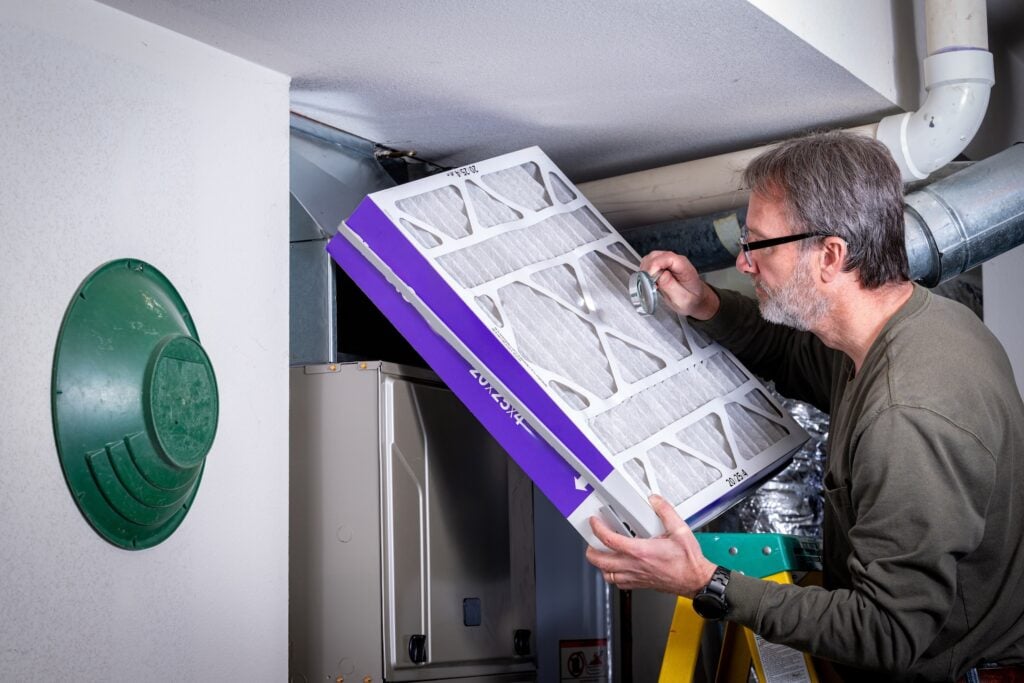How Frequently Is a Furnace Filter Replacement Needed?
If you’ve ever wondered how often to change your furnace filter, you’re not alone. Many homeowners underestimate just how big a role that simple piece of material plays in indoor air quality, system efficiency, and energy costs. A furnace filter replacement isn’t just about keeping the air clean—it’s essential for the health of your entire heating system. When neglected, filters clog with dust and debris, causing your furnace to work harder and your utility bills to climb. For homeowners who are already considering a full system upgrade, learning more about modern heating options through a professional furnace replacement service can also be valuable.
In this guide, you’ll learn:
- Why furnace filters matter for comfort, health, and energy use
- How often you should replace them based on your home and lifestyle
- Signs it’s time to change the filter sooner than expected
- Tips for choosing the right filter for your system
- Maintenance advice to extend your furnace’s life
Why Furnace Filter Replacement Matters

The furnace filter is the unsung hero of your HVAC system. It’s the first line of defense against airborne dust, pollen, pet dander, and even small particles that could harm your lungs or your heating equipment. When it’s clean, it helps your system breathe. When it’s dirty, everything struggles.
Here’s why regular replacement makes such a difference:
- Healthier Air: A clean filter traps pollutants before they circulate through your home, helping reduce allergy symptoms and respiratory irritation.
- Improved Efficiency: With less resistance, your furnace runs smoother and uses less energy to move warm air through your ducts.
- Lower Bills: When your system doesn’t have to strain, you’ll see a noticeable reduction in monthly energy costs.
- Longer Equipment Life: Dust buildup can cause mechanical components to overheat or fail prematurely. A fresh filter helps prevent unnecessary repairs.
- Consistent Comfort: Proper airflow means even heating throughout your home without hot or cold spots.
In homes around Lake Wylie, SC and surrounding areas, where both humidity and pollen can be factors, filter maintenance becomes especially important for maintaining indoor comfort year-round.
6 Factors That Affect How Often Should You Replace Your Furnace Filter?
While there’s no single schedule that fits every household, several key factors determine how frequently your filter should be changed. Below, we’ll break it down step-by-step so you can make the best choice for your home.
1. Type of Filter You’re Using
The lifespan of your filter largely depends on what it’s made of and how well it captures particles.
- Fiberglass Filters: Usually last about 30 days. These are inexpensive and good for basic protection but need frequent replacement.
- Pleated Filters: Can last up to 90 days, depending on the material and usage. They trap smaller particles, offering better filtration.
- High-Efficiency Filters (HEPA or MERV 11–13): Designed for homeowners who prioritize air quality. These can last up to 6 months but require monitoring because they restrict airflow faster if not checked regularly.
2. The Size of Your Home
Larger homes tend to circulate more air through the HVAC system, meaning filters accumulate debris faster. A small condo might only need a filter change every 3 months, while a spacious family home in Lake Wylie, SC could need one every 6–8 weeks, especially during heavy heating or cooling seasons.
3. Pets and Indoor Allergens
If you have pets, filters trap hair and dander in addition to normal household dust. The more pets you have, the more often you’ll need to change your filter—sometimes every month.
Extra considerations:
- Long-haired breeds shed more, requiring quicker filter changes.
- If you or a family member has allergies or asthma, replacing filters every 4–6 weeks keeps the air fresher and cleaner.
4. Seasonal Demands
During high-use months, such as late fall and winter, your furnace runs more often and accumulates debris faster. Even if your filter isn’t visibly dirty, replacing it every 1–2 months during heavy heating periods helps maintain consistent airflow and comfort.
On the other hand, during milder months when your system runs less often, you may be able to extend that interval slightly.
5. Indoor Air Quality and Habits
Factors like smoking indoors, frequent use of candles, or heavy cooking can all add to airborne particles that clog your filter faster. Homes near construction zones or dusty rural areas around Lake Wylie, SC and surrounding areas should also replace filters more often to prevent buildup.
Signs It’s Time to Change Your Filter Sooner

Sometimes, your furnace will tell you when it needs a little help—you just have to know what to look for.
- Rising Energy Bills: A sudden increase in utility costs can be one of the first indicators of reduced airflow.
- Reduced Airflow: If your vents aren’t pushing as much warm air, your filter may be clogged.
- Unusual Furnace Noise: When airflow is restricted, the blower motor works harder and may create a humming or whistling sound.
- Dust Buildup Around Vents: This can indicate that your filter isn’t catching as much debris as it should.
- Musty Odors or Allergy Symptoms: Poor filtration allows particles and allergens to circulate freely.
Checking your filter monthly, even if you don’t replace it every time, helps you stay ahead of these issues.
Choosing the Right Furnace Filter
Not all filters are created equal. The right one depends on your system type, your home’s air quality needs, and your family’s sensitivities.
Filter Ratings (MERV Scale)
The Minimum Efficiency Reporting Value (MERV) rating tells you how effective a filter is at trapping small particles.
- MERV 1–4: Basic protection, mostly for large particles.
- MERV 5–8: Good balance between filtration and airflow—ideal for most homes.
- MERV 9–12: Better for households with pets or mild allergies.
- MERV 13+: Hospital-grade filtration but may restrict airflow; only use if your furnace is compatible.
Choosing the Right Fit
Before purchasing, always check your furnace manual for filter size and MERV rating recommendations. Installing a filter that’s too thick or dense can cause airflow problems and reduce efficiency.
Filter Material Considerations
- Fiberglass: Affordable, low-resistance, but minimal filtration.
- Pleated Cotton or Polyester: More effective, slightly higher airflow restriction.
- Electrostatic Filters: Reusable and washable, good for long-term savings.
- HEPA Filters: Capture the smallest particles, but must match system specs.
Pro Maintenance Tips to Extend Furnace Life
Beyond replacing filters on time, there are additional steps homeowners can take to ensure their heating system stays in top shape.
Schedule Seasonal Tune-Ups
Having your system inspected at least once per year helps prevent unexpected breakdowns. A technician can check for leaks, measure airflow, and clean internal components that filters can’t reach.
Keep Vents Clear
Blocked or closed vents can reduce circulation and strain the system. Make sure furniture or rugs aren’t covering vents.
Inspect Ductwork
Leaky or poorly insulated ducts can waste warm air before it reaches your living space. Professional duct inspections and cleaning help improve overall performance, but for long-term energy savings, you should also consider the benefits of ductwork insulation to prevent heat loss and keep your system running efficiently.
Upgrade When Necessary
If your furnace is more than 15 years old, consider whether upgrading could improve energy efficiency and indoor comfort. Paired with a proper filter maintenance plan, a new system can drastically reduce energy costs.
DIY vs. Professional Furnace Maintenance
Homeowners can easily replace filters on their own, but some maintenance tasks require professional care.
| Maintenance Task | DIY Friendly | Professional Recommended |
| Replacing Filter | ✅ | |
| Checking Filter Fit | ✅ | |
| Duct Cleaning | ✅ | |
| Motor Lubrication | ✅ | |
| System Efficiency Testing | ✅ | |
| Inspecting Heat Exchanger | ✅ |
Knowing when to call for help ensures you don’t accidentally void a warranty or overlook an underlying problem.
In areas like Indian Land, SC, and surrounding areas, where seasonal temperature swings can be tough on HVAC systems, it’s smart to schedule a professional inspection before each heating and cooling season.
Stay Ahead with Preventive Care

Preventive maintenance is always cheaper than furnace emergency repairs. Keeping up with regular filter replacements not only saves money but also helps maintain a healthier home environment. A well-maintained furnace keeps the air clean, distributes warmth evenly, and gives peace of mind throughout the winter.
Even small habits—like setting reminders to check your filter or keeping a spare on hand—can make a big difference in system longevity.
If you’re uncertain about the right replacement frequency for your home or notice recurring filter issues, it’s worth consulting a local HVAC professional.
Ready to Breathe Easier and Save More?
Clean air and efficient heat go hand in hand. Replacing your furnace filter regularly ensures your system runs efficiently, your family breathes better, and your utility bills stay manageable.
Panther HVAC takes pride in helping homeowners across Lake Wylie, SC and surrounding areas maintain clean, efficient, and long-lasting heating systems. Whether you need expert advice on filtration or are considering a full system upgrade, our experienced team is here to help.
For fast, friendly service and trusted HVAC expertise, contact us today to schedule your next filter replacement or heating system inspection.
